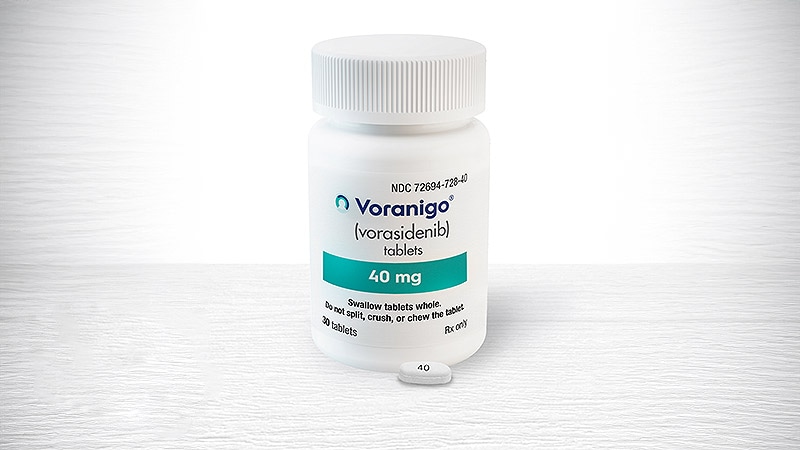The European Medicines Agency’s (EMA) Committee for Medicinal Products for Human Use (CHMP) has recommended granting marketing authorization in the European Union to Voranigo (vorasidenib; Les Laboratoires Servier), for treatment of predominantly nonenhancing grade 2 astrocytoma or oligodendroglioma with specific mutations.
The treatment is intended for adults and adolescents aged 12 years or older, weighing at least 40 kg, whose tumors harbor an isocitrate dehydrogenase 1 (IDH1) R132 or isocitrate dehydrogenase 2 (IDH2) R172 mutation. This recommendation applies to patients who have undergone surgery only and do not require immediate radiation or chemotherapy.
If approved by the European Commission, Voranigo will be the first and only targeted therapy for grade 2 IDH-mutant glioma in the European Union.
Gliomas are central nervous system tumors that develop from glial or precursor cells. Adult-type diffuse gliomas are the most common malignant brain tumors in adults. Their development and prognosis are closely tied to IDH gene mutations. In patients with astrocytoma or oligodendroglioma, mutations in IDH1 and IDH2 cause gain of function, generating excess IDH1 and IDH2 enzymes. This leads to overproduction of 2-hydroxyglutarate, a cancer-promoting metabolite that disrupts normal cell development and drives cancer formation.
Voranigo is a small-molecule dual inhibitor of these altered proteins, designed for improved penetration across the blood-brain barrier. This targeted enzyme inhibition decreases harmful metabolite production while encouraging cancer cell maturation and reducing growth.
The CHMP noted that the major benefit of Voranigo is its ability to prolong radiographic progression-free survival.
The CHMP opinion is based on the positive results of the phase 3 INDIGO Trial, which enrolled 331 patients with residual or recurrent grade 2 glioma harboring IDH1 or IDH2 mutations. These patients had surgery as their only prior treatment. Participants received either 40 mg of Voranigo once daily or a matching placebo in 28-day cycles.
Voranigo demonstrated substantial clinical benefits, including a significantly longer median progression-free survival (27.7 months vs 11.1 months) compared with the placebo group, representing a 61% reduction in the risk for disease progression or death. Time to next anticancer intervention also improved, with a 74% reduction in the need for subsequent therapy or death. At a median follow-up of 14.2 months, 68.3% of patients remained on treatment, indicating good tolerability and sustained benefit.
Voranigo will be available as film-coated tablets at 10 mg and 40 mg doses. The most common side effects include increased liver enzymes (alanine aminotransferase, aspartate aminotransferase, gamma-glutamyltransferase), fatigue, headache, musculoskeletal pain, diarrhea, nausea, and seizures.
Treatment should be started and monitored by physicians experienced in cancer therapies.
Detailed recommendations for Voranigo use will be described in the summary of product characteristics, which will be published on the EMA website after the European Commission grants marketing authorization.
Source link : https://www.medscape.com/viewarticle/ema-greenlights-voranigo-idh-mutant-grade-2-glioma-2025a1000jvb?src=rss
Author :
Publish date : 2025-07-28 13:29:00
Copyright for syndicated content belongs to the linked Source.
